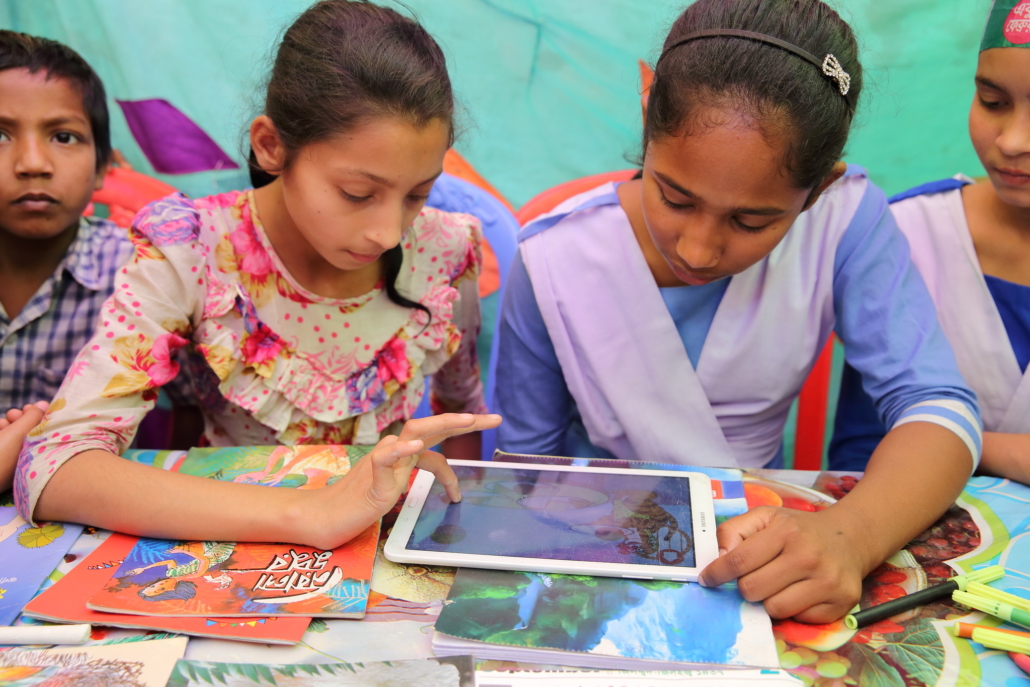The Programs Addressing Learning Poverty

Poverty and illiteracy are closely intertwined. In impoverished areas, access to education can often be financially out of reach, exacerbating other related issues such as hunger and limited resources. Globally, there are at least 763 million adults who lack basic literacy skills, with two-thirds of this population being women. Moreover, in low-income countries, approximately 60% of 10-year-olds struggle with learning poverty, preventing them from reading or comprehending simple stories.
Why Pursue Literacy?
Literacy often bridges the barrier between being financially destitute and successfully independent. After age 5, a child’s survival can increase up to 31% when their mother has some level of education. Furthermore, global studies indicate a 9% increase in hourly earnings for every extra year of schooling a child receives.
Literacy is a tool to battle the inequalities of poverty. It allows chances for social mobility and economic growth, which fosters both community and individual development, as well as equality. Marginalized groups such as women and girls have even less access to education than others and coupled with poverty, sexism is exasperated through a myriad of societal factors. When impoverished women are provided with more opportunities for literacy, they have greater life choices for themselves and go on to positively impact the health and education of their families.
COVID-19
With the onset of the COVID-19 virus, worldwide literacy programs struggled to accommodate new, unknown challenges. Prolonged school closures and varying management strategies led to an increase in learning poverty among children around the world.
In low and middle-income countries worldwide, the incidence of learning challenges has risen by 13%. Before the pandemic, 57% of the global population faced educational difficulties, but this number has since surged to 70%. In Latin America and the Caribbean, 80% of primary school-aged children currently struggle to comprehend basic written text, a stark increase from the pre-pandemic rate of approximately 50%. Similarly, in South Asia, 78% of children struggle with reading, up from the pre-pandemic rate of 60%.
In response to the learning crises presented by COVID-19, a number of countries have implemented the RAPID framework, a guide to “tackle learning losses caused by the pandemic and build forward better that is based on five evidence-based policy actions.” The policy responses focus on 60 low and middle-income countries, with reports paying special attention to Cambodia, Colombia, Côte d’Ivoire, India, Mongolia, Romania and Zambia.
The acronym RAPID stands for:
- Reach every child and keep them in school.
- Assess learning levels regularly.
- Prioritize teaching the fundamentals.
- Increase the efficiency of instruction, including through catch-up learning.
- Develop psychosocial health and well-being.
Only one-fifth of the 60 countries had comprehensive strategies to accelerate literacy and education. Still, there is room for more work.
Programs Fighting That Aim to Alleviate Learning Poverty
Around the world, there are programs that exist to promote universal literacy.
- The World Literacy Foundation — This global nonprofit gathers global literacy leaders and organizations to work together in a variety of different sectors. It provides free books and other resources to children in Australia, South America, the United Kingdom (U.K.), the United States (U.S.) and Africa.
- The International Literacy Association (ILA) — Formerly the International Reading Association, this group is a membership organization of more than 300,000 literacy educators, researchers and experts across 128 countries. The ILA advocates for children’s rights to read and for “excellent literacy instruction in reading, writing, communicating and critical thinking” around the world. It also publishes peer-reviewed research and provides professional development and support for teachers everywhere.
- The Malala Fund — This literacy organization is devoted to uplifting girls in the quest for universal literacy. Through its Education Champion Network, it supports local educators and advocates in low-income regions where women and girls lack opportunities to attend secondary school. The organization focuses on addressing the factors that contribute to the educational disadvantages faced by girls. These factors include poverty, conflict and gender discrimination, which can result in child labor. Many girls work for extremely low wages, sometimes as little as one cent per day, making it difficult for them to access educational opportunities. Additionally, the organization highlights the challenges faced by girls affected by conflict who often reside in refugee camps with limited access to education. To address these issues, the organization invests in promoting universal literacy through advocates and activists in various regions, including Turkey, Tanzania and Pakistan, among others.
- The Literacy and Community Development Programme (LCDP) — This program helps poor and marginalized groups, such as ethnic minorities, prison inmates, people with disabilities and women, in remote areas learn to read. It is unique in that it targets adults 15 and up, as opposed to children. These people who had little to no formal education in their youths are presented with opportunities to attain literacy. It also champions REFLECT, an acronym for Regenerated Freirean Literacy through Empowering Community Techniques, introduced first in 1997. It provides students with resources beyond “primers and other predetermined reading materials,” instead using tools such as maps, calendars, matrices and diagrams.
Going Forward
The need for educational resources for the global poor has always been pressing, but in the wake of the changing, post-pandemic world, it is vital to consider the future. A world of economic liberty and human rights is impossible to achieve without universal literacy. Learning to read is just one step toward progress, but a vital one. By supporting the myriad of programs that look to instate that, people around the world can participate in steps toward a new future and eliminate learning poverty.
– Char Nieberding
Photo: Flickr
